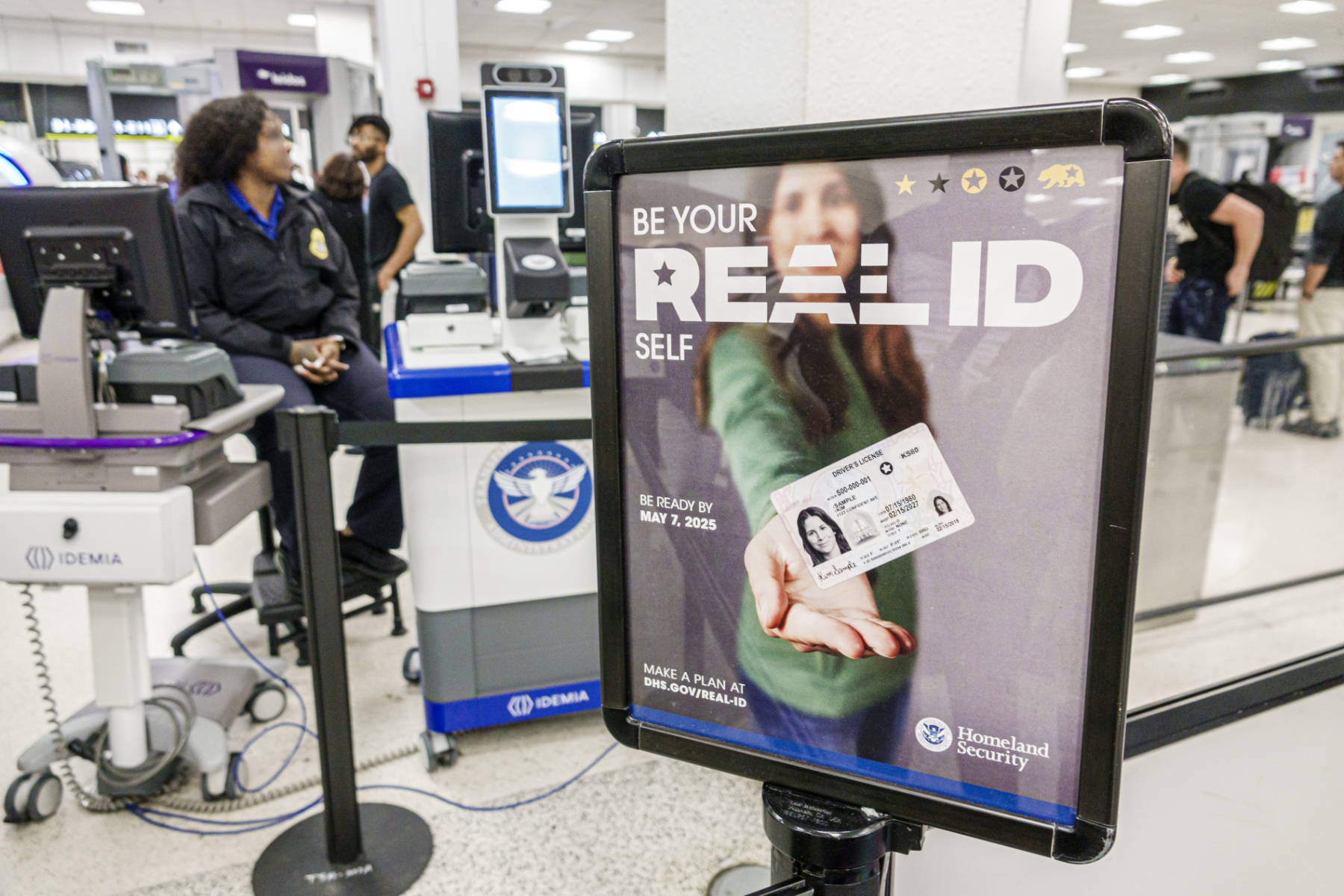The Florida Department of Highway Safety and Motor Vehicles will no longer update a transgender person’s driver’s license with their correct gender identity, according to an internal agency memo sent last week — a move that was not prompted by any new law.
The new policy “pertains solely to replacement license requests,” the agency’s director of communications said in an emailed statement. This would affect transgender adults across the state, since people typically update their documentation after, or while, undergoing medical treatments or socially transitioning.
The rule may expose trans people to criminal or civil penalties if they try to update their documentation. It is unclear whether or how it would affect newly issued licenses, as well as current accurate identification held by transgender Floridians.
Without accurate identification, transgender and nonbinary people face greater risks for violence, discrimination and harassment in everyday interactions, like while showing an ID at the club or grocery store, or while traveling. This is especially true if someone’s perceived gender expression does not match the gender marker on their driver’s license; this can out many trans people against their will.
The agency’s memo states that “misrepresenting one’s gender, understood as sex, on a driver’s license constitutes fraud” and would expose someone to criminal and civil penalties, including the cancellation, suspension or revocation of their license.
Arli Christian, a senior policy counsel for the ACLU, said that their organization is working to understand what Florida’s policy will mean in practice. Although the agency cannot amend state law, it can refuse to issue a license if an applicant has committed fraud — and now, “misrepresenting one’s gender” would count as fraud.
“This could mean that all Florida licenses are mandated to display an individual’s ‘biological sex’ and people with existing identification may have to update them to inaccurately reflect their identity,” they said. “It is quite likely that officials may use this policy to harass any person whose license has a sex designation they disagree with, including visitors from out of state.”
The agency went forward with the rule change even as lawmakers are still debating whether to pass similar legislation against updating driver’s licenses.
One bill under discussion in Florida’s state House would ban original or replacement driver’s licenses from being issued with gender markers that match one’s gender identity, instead of sex assigned at birth. Only one state — Kansas — has passed a similar bill.
The agency’s new rules are tied to Dave Kerner’s appointment as executive director of the agency last January by Republican Gov. Ron DeSantis. After he was appointed, Kerner directed the agency to start making policy changes to follow state law and the department’s “inherent authority,” the agency said in an emailed statement. That authority does not include issuing replacement licenses that match “one’s internal sense of gender or sex identification” — which the agency argues, violates Florida state code.
Logan Casey, director of policy research at the Movement Advancement Project, which tracks LGBTQ+ policy, expects to see more states taking non-legislative action to restrict transgender rights in the coming year. Last year, Missouri’s state attorney general tried to make gender-affirming care for minors and adults nearly impossible to access, and this year, Republican Gov. Mike DeWine brought restrictions on gender-affirming care via state agencies and executive order.
“I think this is just a sign of more things to come,” he said. “I wouldn’t be surprised to see this exact kind of policy move replicated in other states.”
Until now, Casey had never seen an anti-trans driver’s license policy that involves a potential criminal charge. While that part of the agency’s rule is unique, it is similar to other state restrictions gaining traction across the country.
Democrat Anna Eskamani, a member of the Florida House of Representatives, has been personally involved in pushing back against the growing number of anti-trans policies in the state, including one that allowed pharmacies to deny prescriptions to trans adults. She said local tax collectors told her that the Florida Department of Highway Safety and Motor Vehicles has already removed the ability within its software to update the gender marker on driver’s licenses.
“This is another gross example of Governor Ron DeSantis weaponizing every state agency for his cruel agenda of attacking trans people,” Eskamani said via text message. “We will continue to fight back against attacks on the LGBTQ+ community and are seeking clarity from colleagues and attorneys on how community members should move forward.”
Florida’s agency is partially basing its new rule on the argument that, when “gender” is referred to in the state’s statutes on driver licenses, that “does not refer to a person’s internal sense of his or her gender role or identification, but has historically and commonly been understood as a synonym for ‘sex,’ which is determined by innate and immutable biological and genetic characteristics.”
Other states are making similar arguments in proposed legislation that aims to redefine sex across state law. These bills would prevent trans people from being able to update driver’s licenses, hold public office, use public restrooms or take shelter from domestic violence unless they do so according to their sex assigned at birth.
The Florida Department of Highway Safety and Motor Vehicles also bases its new rule on state provisions that a replacement license can be issued only if it is lost or stolen, or if someone changes their name or address. In 2011, the agency changed its rules so that applicants no longer had to provide proof of gender-affirming surgery to update the gender marker on their driver’s license.
“What’s happening here is that, because of the incredibly anti-transgender climate in the state, and these ongoing attacks on transgender people across the country, we’re seeing this change of policy, but it’s being explained in a way to say that, ‘well, we never had the authority to do this all along … so now we’re just going back to following the letter of the state law,” Casey said.







